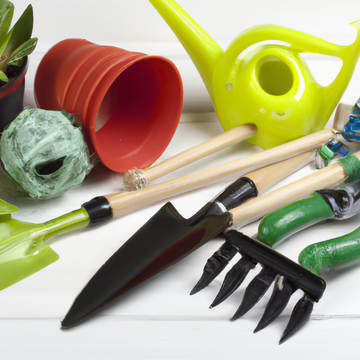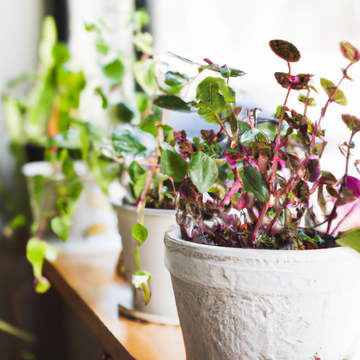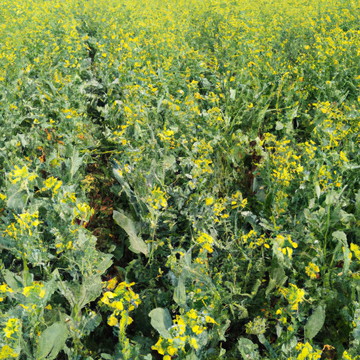How to Use Neem Oil as an Organic Insecticide?
by GOLDDUST- Rethink&Revive on May 15, 2023

Gardening and agriculture can be challenging due to the presence of pests, which can cause significant damage to crops and plants. While synthetic insecticides are readily available, they often adversely affect the environment and human health. Therefore, it is essential to consider natural alternatives such as neem oil, which has proven effective in controlling pests without compromising the environment or human health.
What is Neem Oil?
Organic Neem oil for plants is a natural oil extracted from the neem tree, a tropical evergreen native to India. It has been used for centuries in Ayurvedic medicine for its various healing properties. The oil is extracted from the seeds and fruits of the neem tree, which is then refined to produce a yellow-brown oil with a strong odour.
Neem oil for plants is rich in Azadirachtin, the active ingredient responsible for its insecticidal properties. Other compounds found in neem oil, such as Nimbin, Nimbidin, and Salanin, have also been found to possess insecticidal properties. Neem oil is also high in fatty acids and vitamin E, which nourishes plants and strengthens their natural defence against pests and diseases.

How Neem Oil Works as an Insecticide?
Neem oil works as an insecticide by disrupting the growth and development of pests. The active ingredient Azadirachtin acts as a feeding deterrent, repellent, and growth regulator. When pests ingest neem oil, it interferes with their hormonal balance, making it difficult for them to moult, lay eggs, or reproduce. Neem oil for plants also affects the feeding behaviour of pests, making them lose their appetite and eventually die.
Neem oil is effective against a wide range of pests, including aphids, mealybugs, spider mites, whiteflies, thrips, and scales. It is also effective against several diseases, such as powdery mildew, rust, and leaf spot.
Compared to synthetic insecticides, organic neem oil for plants is less toxic to beneficial insects such as bees and butterflies and does not leave harmful residues in the environment.
How to Use Neem Oil as an Insecticide
Before using neem oil insecticide, it is essential to prepare it for use. Neem oil can be purchased in concentrated form, which must be diluted with water to the appropriate concentration for use. To prepare neem oil for use, mix 1-2 teaspoons of neem oil with 1 quart of warm water and a few drops of dish soap. Shake the mixture thoroughly before use.
Methods of Application of Neem Oil
Once neem oil is properly prepared, it can be applied to plants using various methods, including:
Spray
Neem oil can be sprayed on plants using a spray bottle, pump sprayer, or hose-end sprayer. Spray the neem oil spray for plants evenly on all parts of the plant, including the leaves, stems, and fruits. Avoid spraying in direct sunlight or extreme heat, as it can cause the solution to evaporate quickly and reduce its effectiveness.
Soil Drench
Neem oil can also be applied to the soil around the plant to control soil-dwelling pests, such as root aphids, nematodes, and fungus gnats. Mix neem oil with water, pour it around the plant's base, and saturate the soil. Repeat the application every 7-14 days.
Foliar Application
Neem oil for plants can also be applied directly to the leaves of plants using a fine mist sprayer or atomizer. This method is helpful in controlling pests that feed on the leaves, such as spider mites and whiteflies.
When using neem oil, following the manufacturer's instructions regarding dosage and concentration is crucial. Applying too much neem oil can cause damage to plants, while applying too little may not be effective in controlling pests.
It is also essential to take precautions when using neem oil. Wear protective clothing, gloves, and eye protection when applying neem oil to avoid skin irritation and eye damage. Avoid spraying neem oil during hot and sunny weather to prevent plant damage.
Neem Oil for Different Types of Plants
Neem oil can be used on various plants, including vegetables, fruits, ornamental plants, and herbs. It is effective against different types of pests that commonly infect these plants. For example, neem oil can be used to control aphids, whiteflies, spider mites, mealybugs, and caterpillars.
When using neem oil on edible plants, it is essential to be mindful of the pre-harvest interval (PHI), the minimum number of days that must pass between the last application of neem oil and the harvest of the plant. This is because neem oil can leave a residue on plants, which can be harmful if consumed.
Conclusion
Neem oil insecticide is a powerful organic insecticide that provides an effective and safe solution to pest control in gardening and agriculture. It is easy to prepare and apply, and its properties make it an ideal option for organic farming. While other organic insecticides are available, neem oil stands out for its versatility and effectiveness.
If you want to try out neem oil for your garden or farm, you can find high-quality neem oil products at Gold Dust Gardening. They offer a wide range of neem oil products perfect for controlling pests and promoting healthy plant growth.
Using neem oil as a natural insecticide protects your crops without harming the environment or relying on harmful synthetic chemicals. So why not give it a try and see the difference it can make in your gardening or farming endeavours?




